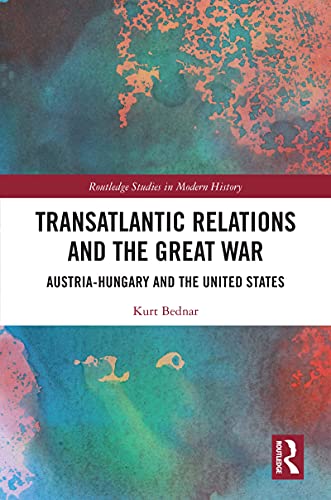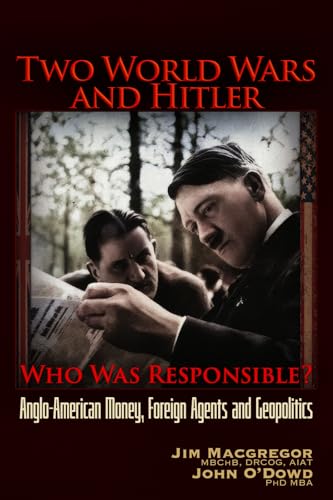
Transatlantic Relations and the Great War
by Kurt Bednar
"Austria-Hungary and the United States"
Popularity
0 / 5
* A book's popularity is determined by how it compares to all other books on this website.
Where to buy?
Buy from Amazon* If you buy this book through the link above, we may receive a small commission at no extra cost to you.
Transatlantic Relations and the Great War by Kurt Bednar
Details
War:
World War I
Perspective:
Researcher
True Story:
Yes
Biography:
No
Region:
North America
Page Count:
354
Published Date:
2021
ISBN13:
9781000461428
Description
Main Themes and Topics
Transatlantic Relations and the Great War by Kurt Bednar delves into the intricate diplomatic and social dynamics between the Austro-Hungarian Empire and the United States, particularly during and after the First World War. The book primarily focuses on the relationship's development over several decades and its eventual disintegration. Bednar examines how newly arising geo-political structures, like the Mid-European Union, aimed to fill the void left by the dissolving Austro-Hungarian Empire. A significant theme is the cultural and political disconnect between the US and Austria-Hungary, compounded by a mutual lack of understanding and awareness of each other's internal and external affairs. The book takes a critical look at how distinct historical paths and diplomatic actions in 1918 could have altered the course of history. It also highlights the impact on the immigrant population from the Habsburg Empire in the US, emphasizing the real human cost of these transatlantic tensions.
Writing Style and Tone
Kurt Bednar adopts a narrative style that is both analytical and engaging, making a complex historical subject accessible to both scholars and general readers. The tone is scholarly yet approachable, as Bednar weaves detailed historical facts with an insightful analysis of the broader implications of these transatlantic relations. The writing is clear and concise, allowing readers to easily follow the chronology of events and understand their significance. Bednar’s ability to elucidate dense diplomatic developments with clarity makes the book a compelling read for anyone interested in history and international relations.
Criticism
While Transatlantic Relations and the Great War offers a fresh perspective on a pivotal era in history, some readers might find the book's focus on diplomatic events somewhat narrow, given the multifaceted nature of the Great War's impacts. Critics might argue that the book could benefit from a broader examination that includes more diverse social and cultural exchanges between Austria-Hungary and the United States beyond diplomatic circles. Additionally, readers looking for an in-depth analysis of military aspects may find this account lacks in that area, as Bednar concentrates more on diplomatic relations and political ramifications.
Brief Summary (no spoilers)
Kurt Bednar's Transatlantic Relations and the Great War presents an in-depth exploration into the historical relationship between the Austro-Hungarian Empire and the United States, especially against the backdrop of World War I. The book critically examines the events leading to the war declaration against Austria-Hungary by the United States and the resulting diplomatic, political, and social repercussions. Through a detailed narrative, Bednar exposes the mutual ignorance that characterized the relationship between the two powers and considers how different diplomatic choices could have potentially changed the course of history. This work serves as an invaluable resource for those intrigued by European and American historical interactions, diplomacy, and war studies.









